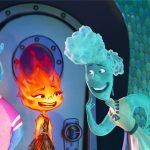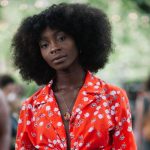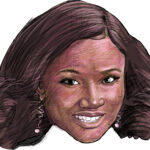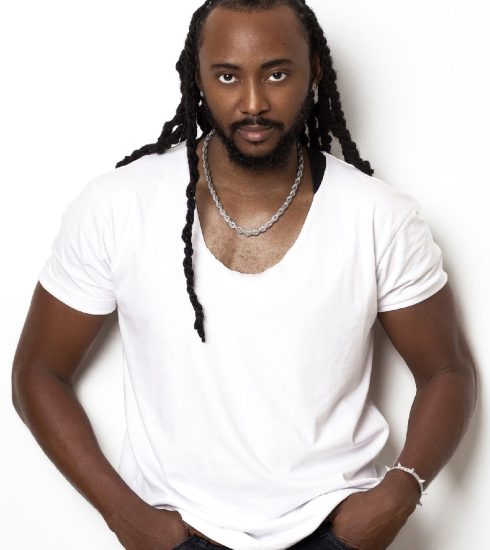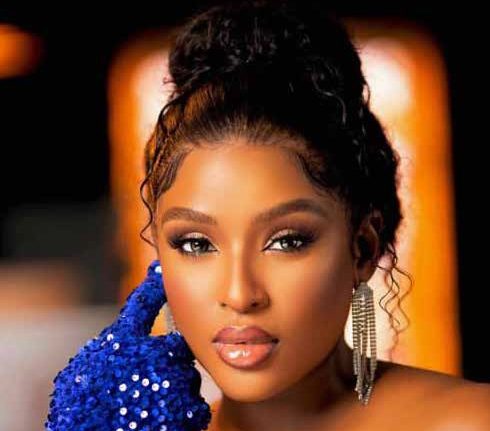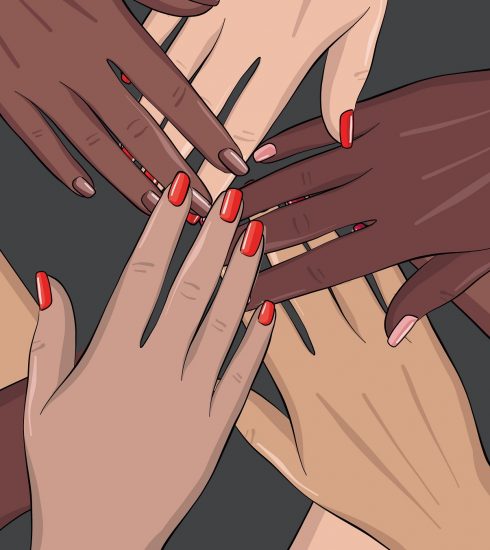Christopher Ubosi’s Impact On The Nigerian Radio Scene
National Radio Day is celebrated on August 20th and always has a distinctive resonance on the airways. It’s a day to celebrate the classic form of expression that has served as a dependable friend, source of entertainment, and knowledge for ages.
National Radio Day celebrates radio’s heritage, innovation, and impact while also serving as a reminder of the medium’s ongoing appeal in the face of contemporary technological developments.
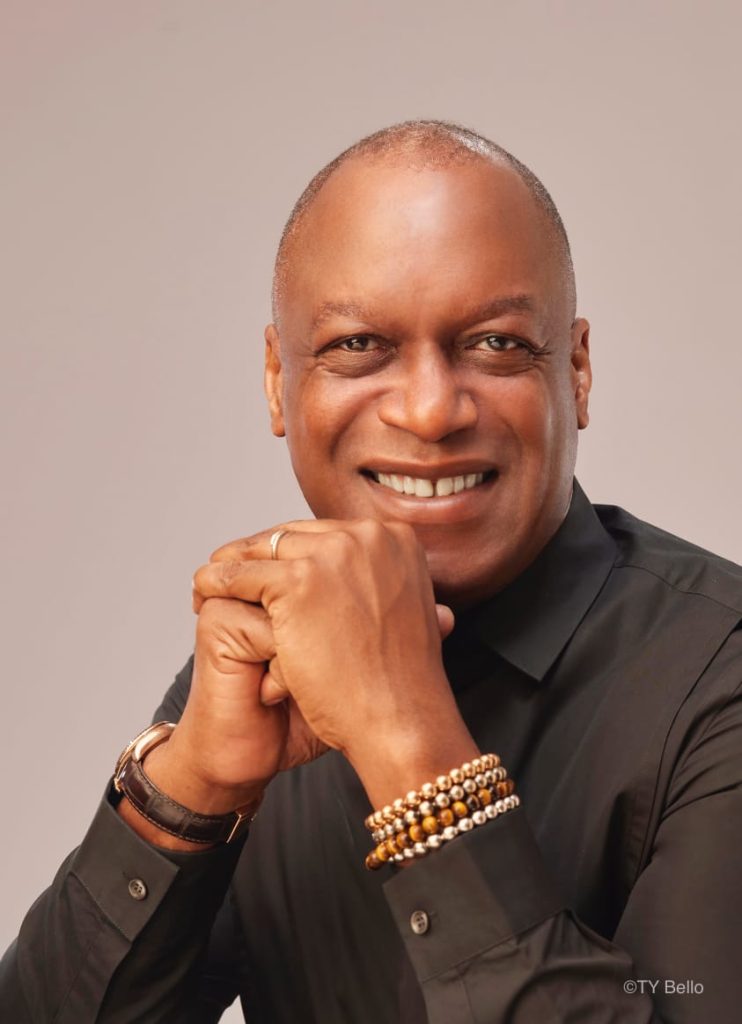
As the country celebrates National Radio Day, Christopher Ubosi, Managing Director and Chief Executive Officer of Megalectrics, offers insights into his career path from journalism to owning more than four eminent broadcasting companies in Nigeria and abroad. In this interview with TheWill’s Executive Editor, Onah Nwachukwu, he discusses his journey from humble beginnings to becoming a radio tycoon, his perceptions of the enormous influence that radio has on communication, and the innovative tactics that have kept his stations not only relevant but also very resonating with listeners.
Can you walk us through the journey that led you to become the owner of not just one but four successful radio stations?
First of all, thank you for the interview and for at least recognising National Radio Day.
I’ve been in the industry for longer than I should say, but I’ve never been interviewed on National Radio Day. National Radio Day is a day set out to celebrate the AM and FM radio stations or radio transmission worldwide. This is the first time I hear of it being celebrated in Nigeria, and that’s a big up for TheWill.
Usually, we have World Radio Day, which is just a day, but National Radio Day itself is always on offer in Nigeria. So, well done to TheWill’s team for recognising the day.
Back to your question, we own 12 radio stations, but there are four brands, Lagos Talk, Classic FM, which is in three cities, Lagos, Abuja, and Port Harcourt, the Beat FM, which is in two countries, Nigeria and London, and four cities in Nigeria, Lagos, Port Harcourt, Ibadan, and Abuja, and lastly, Naija FM, which is in Ibadan, Port Harcourt, and Lagos.
So, we started with two names, the Beat and Classic FM in Lagos, and as we went along, we got more successful, so we decided to go to different states, and we started with Ibadan, then we went to Port Harcourt, and then Abuja as we realised that there were gaps in the market, which weren’t being well serviced, particularly the traditional language stations.
That gave us the idea of starting a Radio Station to celebrate local languages, so we started with Naija FM. And then the last one we did was Lagos Talk, which was seven years ago. Talk radio is one of the most controversial formats of radio, which is very successful. It’s probably one of our most listened-to brands. But the thing with Talk radio is that people will not call you and talk to you about the good things that happen to them. Talk radio is more of an agony thing, where people call in to complain about government policies, their banking services, the traffic, the power situation, and power companies. We did Lagos Talk last because we, first of all, wanted to gain access as a responsible media company, not one which is very easy to interpret as being anti-government or anti-establishment when you always seem to be talking negatively about the institutions that you interact with. So, that was the last one we did because, at Megalectrics, we’ve gained people’s trust and made them realise that we are a proper media company and are not partisan. We live by the best practices of the industry. Because, in truth, you don’t own the frequency; you hold it in trust for the public.
That’s why that was the last one that we did.
But so far, the journey has been good. We have partners in different companies. Megalectrics is the one that operates them, but they don’t own all the licenses. They operate the licenses of our partners.
Each of your stations, from Beat FM to Classic FM, Nigeria FM, and Lagos Talk FM, has distinct vibes. What inspired you to create these unique stations, catering to different audiences?
Lagos is a case in point; Lagos is a very cosmopolitan city where we have people with diverse backgrounds, diverse upbringings, and diverse financial abilities; everything is cosmopolitan. People from different cultures, local and international, are all in Lagos. If you had to, at some point, begin to cater to individuals, it has to be segmented. This is all research. So each radio station was segmented for nostalgic music; it is for older people. When I say older, it’s typographic.
It’s not the age. When I was 20, I used to listen to Nat King Cole.
Beat FM is for the younger people, Naija FM is grassroots, and Lagos Talk is a conversational station. So, in each of them, we tailor our presenters, our presenting style, our programming, our music, and our conversations to the audience they’re meant to speak to, which is why they’re so successful.
Can you talk about a specific moment or campaign where your radio station significantly impacted the community or brought about a positive change?
No one comes to my mind at the moment, but on a day-to-day basis, from a long-term standpoint and an immediate standpoint, we always have people calling and saying they’re being robbed, or people calling and saying there’s an accident, so we put it out on the air, and you get a call straight up from relevant authorities, particularly in Lagos. You are in a conversation on the radio, and somebody calls in to complain about something that has to do with the banking service or something that has to do with whatever customer-facing service, and in four minutes, you get a call from whoever it is, and they try to rectify the situation. So, it happens to us almost every day. And there are a few landmark ones, but I would rather not say so that I don’t seem to be exposing the government or whoever it is.
I don’t want to be the reason why they did what they did, but I can assure you that it happens quite often. And we’re very happy, and I’m glad we’ve been able to do that.
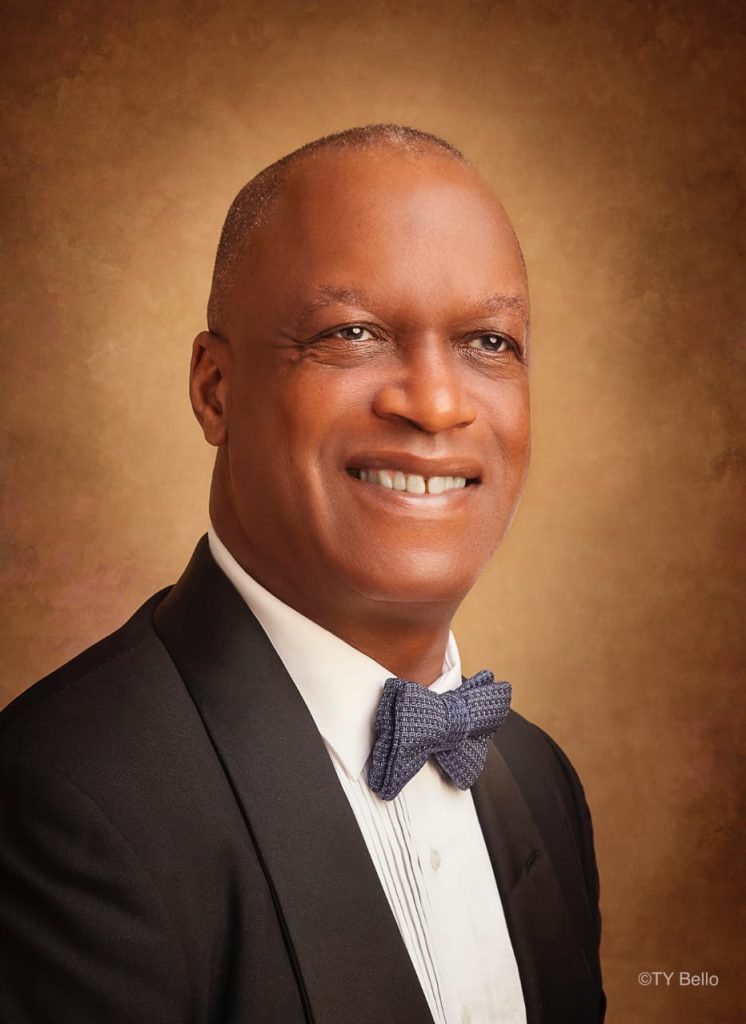
Radio has been a constant companion for generations. From your perspective, what makes radio an enduring medium of communication in this digital age?
Well, everybody complains about the traffic. Everybody complains about no power. Everybody complains about many things, but that’s why radio in Nigeria is what it is. We have this thing called TSL(Time Spent Listening). In the U.S., it’s about 15 minutes spent listening to the station you’re listening to. But in Nigeria, it’s over an hour because of the traffic. You know, traffic is something that makes our services crucial. For instance, when I’m in the car with my daughter, I’m not going to play the songs I want to listen to; I’ll put on the radio. So that’s what happens, and that’s why radio is so big in Nigeria. Some developments are affecting that, but it’s big in Nigeria because of traffic. You don’t need the power to listen to the radio, but you need power to watch TV. You just put your batteries in your transistor. You see all these people who sell things on the road; they have their little transistors—the Malams and so on. So that’s what makes radio enduring in Nigeria.
In today’s fast-paced world, how does radio succeed in creating a sense of intimacy and connection with listeners that other mediums might struggle with?
Until recently, radio was the only medium you could take with you everywhere you went until we got television services on our phones and so on. Radio was the only medium up until 10 years ago, and radio is still the only medium where you don’t need to have data before you can listen to it. Without data, you can take your radio services in your car, on your transistor radio, or whatever medium you’re consuming it on. So it’s trustworthy.
It’s something that you feel that anything that the radio says to you is true. That’s why people advertise on the radio. You almost feel that it’s verified. That’s why they use the radio when there is a storm in the U.S or an emergency. They don’t use any other medium.
That is why I tell people who have just joined radio broadcasting to practice responsible broadcasting.
Because if you say something, it’s assumed to be true.
In those days, when there was a coup, they’d broadcast it to the radio stations. That’s just one side of it. The other side of it is that we have what we call personality radio. You are driving in the morning, listening to Classic FM with Bukky or Caesar or Beat FM with OC or BB Ray. Better still, let’s assume you are going home in the evening and listening to Osas; you feel that they’ve become almost like your friends because you’re so used to what they’re saying and you’re used to everything about them. It almost feels like, you know them, it’s almost like a personal thing because they’re such a part of your life. That’s where the intimacy comes in. You go to bed at night and listen to late-night, mellow music, mellow magic. It’s the reason why radio has that intimacy. Because I have heard people say, Chris, “I have to come and meet this guy in your office; my wife loves the music he plays, my wife loves it.” And, I’m looking at them like, “How are we going to do this?”. So, that happens, and that’s the intimacy of radio. That’s one of the things that it does. You can take it everywhere you go, and in everything you do.
It’s not obtrusive. You can be cooking and listening to it. You can be in the gym and listen to the radio. You can drive and listen to the radio. You don’t have to give it your 100% attention. So, it’s like a companion.
And that’s where the intimacy is; it’s like a friend. And this is research-proven, not Chris Ubosi saying it. So, that’s why it is trustworthy and ever-present. This is what I tell my colleagues in the office. I say, listen, you’re five minutes late; somebody has been waiting to listen to you for five minutes, and that’s why I try to tell people when I lecture in schools or when I mentor. To you, it’s nothing. But to one person, to 12 people, to a million people, it’s something. That could be the five minutes I have to listen. That’s how intimate radio is. And that’s where the intimacy comes from.
Radio is dubbed the theatre of the mind. How do you think this quality has contributed to the lasting impact of radio in our lives?
I think it kind of dovetails into what we were talking about because when you say radio is the theatre of the mind, with radio, with technology, there are sound effects, there’s scripting, there’s a whole bunch of things that just lets you create something that only you can imagine. I create the clapping sound effects. I’m not seeing it. It’s a visual medium. It’s an aural medium. So you’re not seeing it. But it allows you to interpret it how your own experience makes you interpret it. If I put a sound effect of a car speeding down the road and I say to you that it’s a fast car, you can think it’s a fast car. You can call it whatever car you want. It depends on what you’ve experienced. That’s why it’s called the Theater of Dreams. It allows you to interpret it as you would your dream because it’s an individual experience. Your experiences dictate how you see or how you consume and interpret them.
Let’s talk about the ability to connect with people on the radio. Radio has been able to connect with people on an emotional level, which you spoke about now. How do you and your team create content that resonates deeply with your audience’s emotions?
Here’s the thing. I must have built half the radio stations in Nigeria; I must have consulted, but I still don’t have the arrogance to say that I know what my audience wants.
We invest heavily in research. We do a lot of research. We continually try to find out what our audience wants. We amplify those parts of it. We identify defining strengths and invest in them. We put the audience first. We research their needs. That’s the emotional benefits that only radio can provide. You know what they want and what they would like to listen to in the morning. I know what you’d like to listen to in the evening. I know what kind of conversations you want to have, you want to be uplifted in the morning and relaxed in the evening.
You’d rather not have sports in the middle of the day because you’re busy. You curate all this content based on your listeners’ needs, bearing in mind that you’re going up against other media. You’re going up against TV. You’re going up against YouTube.
You’re going up against social media. You’re going up against a whole bunch of stuff. You curate what it is that your audience tells you that they want. You become arrogant when you think you know or can dictate to them what you want. When we started radio, it was one-dimensional. We just spoke to you. But as we progressed, we realised that we had to have feedback from our audience. That’s where we started getting phone lines to you. Now we have social media. As you speak to the audience, you want to hear what they think about what you have to say. It’s now a two-way street. When we started, we just played the music. We didn’t have a chance to talk to tell them what we wanted or what we didn’t want; we just took what they gave. But as we became more sophisticated, you realised you needed to carry your audience along.
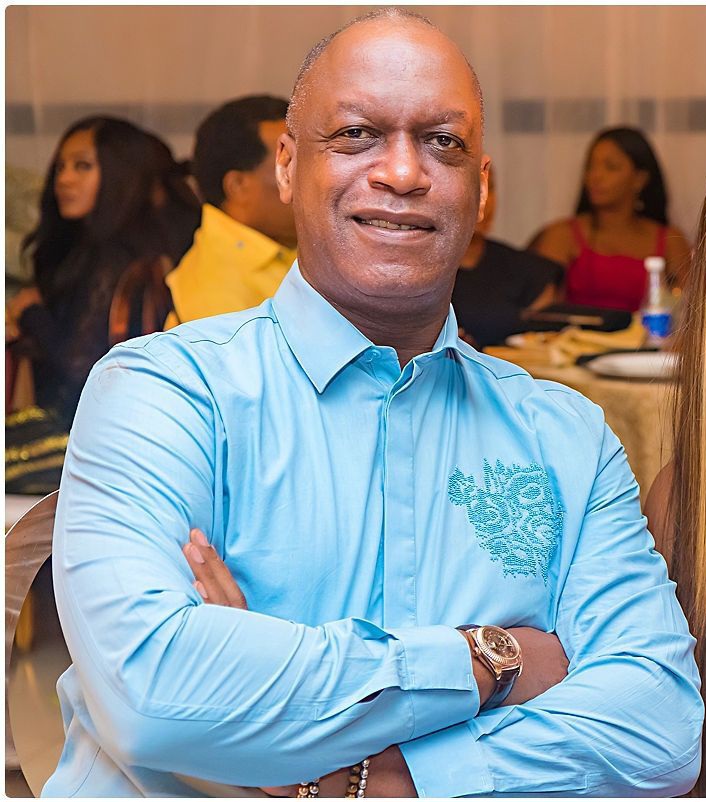
You spoke about carrying your audience along and radio evolving. As the media landscape is ever-evolving, what future trends do you foresee in media broadcasting, and how are you preparing your stations for these changes?
Well, I’ll say it doesn’t only apply to radio; it applies to every industry worldwide, including yours.
Everybody needs to begin to embrace Artificial Intelligence(AI). AI is a big monster we all have to cater for, make room for, and try not to fight. You can’t defeat it. It’s here to stay and will get more intrusive and prominent in every industry. Now, we’re practising a hybrid at work, where people come to work on several different days. AI and radio, that’s a big thing now. We, fortunately, have always adopted social media. We have the biggest social media following among radio stations in Nigeria. We use AI for a whole bunch of things now.
We use it to create ads. There’s so much you can do with it. You can use algorithms to pick up from the archived audio that you can reuse as podcasts.
You can create virtual hosts for your programs.
You can use it for language translation. Say I want to translate something into Igbo, Yoruba, French, to whatever; AI is there. There’s a station in the U.S. they have a total virtual DJ. There is nobody there; AI is running it. It’s simple. What it does is that it, first of all, searches social media. If you take Lagos as an example, it searches it on social media, Twitter, and Instagram, finds what’s trending, and extracts it. Then it uses GPT to write a script based on it, saying that, okay, there’s traffic on Awolowo road, or somebody just got evicted from BBN All-Stars, or TheWill just won an award. It extracts that and uses GPT to write a script in the language. If it’s in Kaduna, it can write it in Hausa. If it’s in Lagos, it writes it in English. Then the AI voices the script.
You have a choice, you can do it as a single person or two people, and it goes out on air. Guess what?
While it’s doing all this, it generates real-time social media content that you can push out. We’re all going to have to come to terms with it.
We’re all going to have to begin to embrace it. It’s going to be in Nigeria. We use the algorithm for podcasts and all archives. We haven’t yet gotten to the stage of using it to copy the voice of our OAPs or anything. But it’s going to get there because things are getting so difficult in the industry now. We’re going to have to cut costs and whatever we can.
This is one of them. But it’s interesting. We all have to embrace technology. It’s real. AI producers are producing music now. You have songs out now that are not produced by humans. 73% of the producers in the U.S. are afraid of what AI is doing. The only problem now is they’re beginning to wonder where the copyright stands in this thing because you use someone’s work to train them.
I don’t have to pay copyright when I use AI to do anything. Because it’s me who did it, so every industry, every single industry, has to be afraid and very, very afraid and at the same time embrace what they can. So that’s the biggest thing. The rest of the things we’ve managed to live with and coexist with, and we’ll continue to do that.
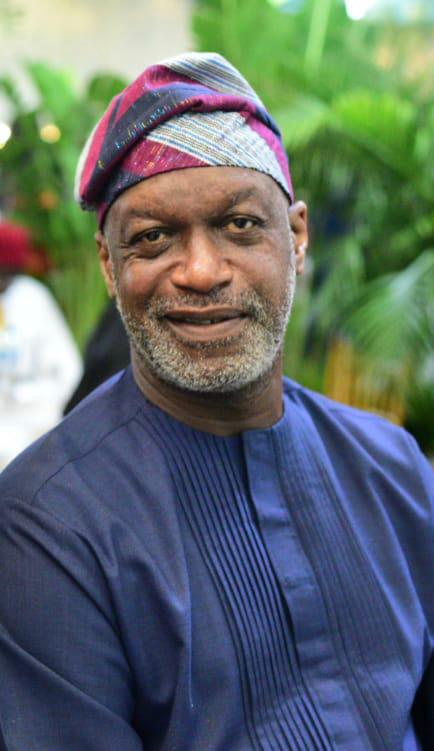
With social media and streaming platforms prevalent, how do your radio stations adapt and continue to foster a sense of community among listeners?
With social media and streaming, I’m not going to front on that. They’ve eaten into our audience and many of our financial standpoints. But here’s the thing; it is what it is. It’s there. So what we at Megalectrics do is we look at it more not like competition but more like a collaboration. So that’s why you still find that we have massive relationships with traditional media, traditional record label owners. We still have them coming to the studio. I think Timi Dakolo is doing something with us now. We’ve had Davido come and do a takeover of the station. We’ve had Wizkid, we’ve had the Mavins, we’ve always had a good relationship with them. So you want to keep it more as a collaboration. They’re eating into our money, but they also realise that we’re partners. And that’s the only way this industry will grow and be sustained. Regardless of everything they say about radio and I’ll use statistics. I can’t use Nigerian statistics. But in the U.S., 80% of people still listen to the radio every day. It’s there. It’s ubiquitous. It’s not going to go anywhere.
We don’t view social media as competition. We view them more as collaboration. Sometimes we do a 360 with them. We expose it on the radio. You expose it on social media. We put it in print. We put it on TV. It’s a whole 360. We put it on billboards.
No medium, including digital media, can stand on its own. I don’t consume digital media, for instance, so if you’re trying to advertise to me on digital media, well, WhatsApp forces me to look at it.
So it is more like a collaboration than a competition. And that’s the only way from now on that it can work for all of us.
Content that captivates requires creativity. What is an innovative or unexpected idea that became a hit on one of these stations?
As I just mentioned, Davido did a takeover for his album release, Timeless.
He did a takeover of Beat.FM, all our Beat FM stations in Nigeria. And then, in the UK, it became Timeless radio.
And it was so big; everybody now wants to do it with us. You know, you turn on the radio. Even RDF, when you put on the radio, the thing that tells you Beat.FM was not Beat.FM, it was Timeless radio. We’ve done so many other things. We’ve done very clever things.
I work with really clever people. I want to thank them. They’re a massive part of the success of our brands.
What would you say is your favourite song? Could you share a song you never get tired of listening to or hearing? And why it holds a special place for you.
There are three of them: Bob Marley’s Redemption Song, Soldier Love, Brothers in Arms, and then there is a song, I think it’s called That Ibo Boy by Illbliss. So those songs and there’s also Oliver Twist. Oliver Twist, to me, because it has two of my favourite people worldwide; Dapo and Don Jazzy. You know, I liked That Ibo Boy because it was just a new thing. I had never heard anything like it.
And I also like Black Magic. My school days were Bob Marley and Dire Strait’s Brothers in Arms. I remember when we didn’t have a dime and were waiting for our next allowance from our parents. We’d sit down and listen to Brothers in Arms. We’d tell each other, don’t worry; we’re brothers in arms. We’re just waiting.
Those are songs that I like, which is why my kids don’t let me play my music in the car when I’m with them because those are the songs I would play on repeat.
As a leader in the radio industry, what advice would you give aspiring entrepreneurs looking to make their mark in radio broadcasting?
It depends on where you’re coming from and what standpoint you’re coming from. Do you want to be a great OAP? You see, there are many facets to being a radio broadcaster. I mean, there’s production.
I have the privilege of having the greatest production team. I used to produce my Sweepers and my Studio IDs abroad, and when I sent them the samples, I wanted them to copy, they’d say, ‘Bro, you don’t need that; your guys there are doing great. We are prepared to give you work.’ So there are different parts to the radio. You want to be in traffic, or whatever it is you want to do, like everything, grind hard and do it. Persevere at it.
And it depends if you want to be an owner. It takes years to get a license. It takes more years to break even. You need to have a proper niche. You need not be arrogant. You need to do your research and decide who you are talking to. I have to say everybody tries to use a shotgun where you just spray plenty of pellets and kill everybody. These days, you need to be a sniper in your approach to things. Decide who you’re speaking to. Are you talking to women of 18 to 34? Are you talking to men of 25 to 30? Who are you talking to? And do everything, from your branding to your positioning, all should be skewed toward that directly.
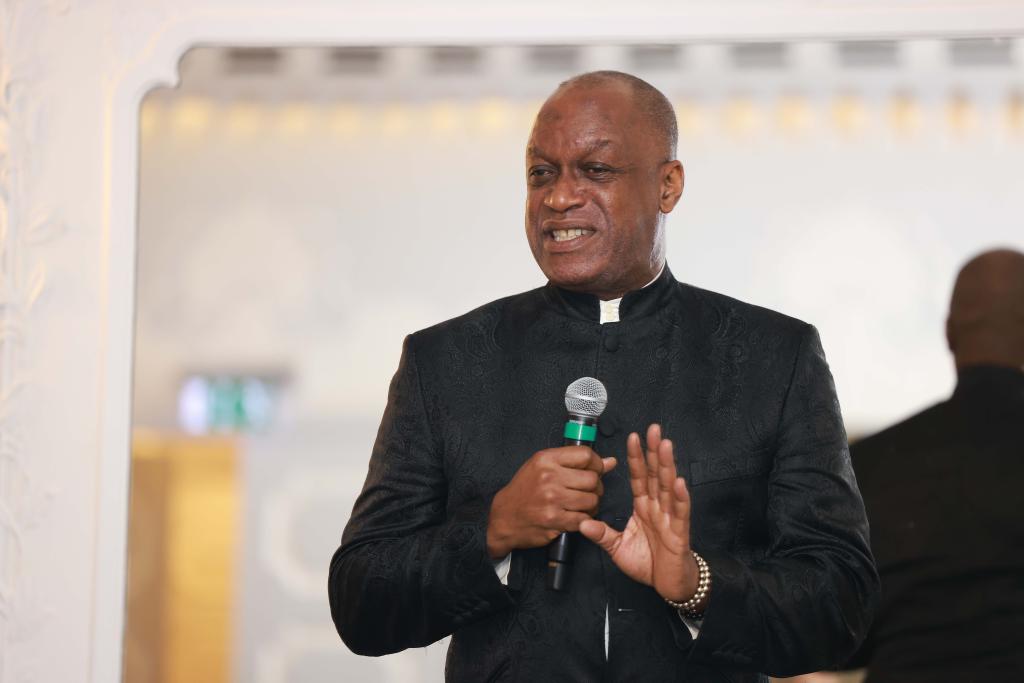
Who would you like to host a show with if you were given the opportunity?
If I were given the opportunity to host a show, the first person would be President Olusegun Obasanjo. I’m privileged to be on the board of the Olusegun Obasanjo Foundation. So we have several meetings with him, and each of them is like an experience. That’s the thing about being a great man; you have to be liked or not liked.
You can’t be a good man if you’re only not liked. If you’re only loved, there has to be a problem with you. You cannot be your own man if you are only on either side, and Olusegun Obasanjo is that man. I learn so much from discussing at meetings that I have with the man. We’re talking about things, and he pulls in so much, you know what I mean?
And he pulls it in such a forthright manner, although some may say he is arrogant, you know, it gets to a place where you have seen so much that you can’t afford to appear arrogant. But if you interrogate it, you will realise it’s the love for the country. It’s the belief in oneself. The belief in one’s abilities makes you appear to be arrogant. So he is somebody I’d like to host a talk show of people who’ve served in this country. To converse and, in truth, find out why they did certain things. That’s the kind of show that I’d like to do. Everybody has asked me to go on the radio; they compliment my voice and say you have the experience, but I’m like, ‘ Let me stay at the back end and try to keep the lights on.’ But if I was going to do it, he is the person I’d like to do it with.
A lawyer by training, Onah packs over a decade of experience in both editorial and managerial capacities.
Nwachukwu began her career at THISDAY Style before her appointment as Editor of HELLO! NIGERIA, the sole African franchise of the international magazine, HELLO!
Thereafter, she served as Group Editor-in-Chief at TrueTales Publications, publishers of Complete Fashion, HINTS, HELLO! NIGERIA and Beauty Box.
Onah has interviewed among others, Forbes’ richest black woman in the world, Folorunso Alakija, seven-time grand slam tennis champion, Roger Federer, singer Miley Cyrus, Ex Governor of Akwa Ibom State, Godswill Akpabio while coordinating interviews with Nigerian football legend, Jayjay Okocha, and many more.
In the past, she organised a few publicity projects for the Italian Consulate, Lagos, Nigeria under one time Consul General, Stefano De Leo. Some other brands under her portfolio during her time as a Publicity Consultant include international brands in Nigeria such as Grey Goose, Martini, Escudo Rojo, Chivas, Martell Absolut Elix, and Absolut Vodka.
Onah currently works as the Editor of TheWill DOWNTOWN.


